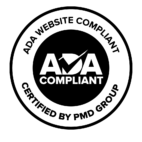Thinking about starting your own business but not sure where to start? You’re not alone! Borrowing money to start your own business is overwhelming and the fear of failure can be enough to stop many in their tracks. However, if you dream of being your own boss, navigating the process is a necessary step.
Here is the skinny on how to get a small business loan in 5 easy steps.
1) Determine why you need the money
Creating a business plan will help you pinpoint what you need to borrow money for and how much you will need. Business plans can vary based on the industry and complexity of your business, but all of them should include an executive summary, company description, market analysis, organization and management breakdown, explanation of the products or services offered, marketing & sales tactics, financial projections and a funding request. Get more information on how to create a business plan here.
2) Find the right business loan
Term loans, SBA loans, equipment loans, lines of credit, microloans, cash advances…. To sum it up, there are seemingly endless options of loans out there. How do you decide what’s the right fit? A lot of it will depend on how much money you need, what you need it for, how long you’ve been in business and your personal credit score.
Term loans tend to be the most common and grant you a lump sum of cash upfront which you will repay over a set term with a predetermined, fixed interest rate. The SBA (Small Business Association) also offers loans specifically to small businesses and tend to offer low interest rates with long repayment terms, which is ideal for startups. Business lines of credit will give you access to a set credit limit and you only borrow money as you need it, paying interest only on the money you’ve borrowed. Read more about business loans and the pros and cons to each here.
3) Compare Lenders
Once you’ve determined which type of business loan is the best fit, be sure to shop around for the right lender, too. Interest rates and terms can vary pretty significantly and it’s important to ensure you’re borrowing money at the best deal you can.
4) Get qualified
Each lender is different when it comes to what they need from you to process your application but, as a starting point, be prepared to provide them with detailed personal and business financial information including all income, assets, and debts. Depending on the size of your loan, financial statements and accounting records will also be required. Check your credit score too and if it isn’t great, work on improving it before you apply. Your personal financial situation will determine if you are approved for a loan and the terms offered to you.
5) Analyze the approval
Once you’ve been approved for a loan, be sure you carefully review all of the documents and criteria before signing. You’ll want to know the interest rate and repayment terms as well as any fees, covenants imposed, and collateral required. Also, know limits on how the loan can be used and how/why any penalties will be imposed. If you aren’t sure what something means, ask for verification!
The terminology used in financing business loans can be tricky and like a foreign language for the average American. By talking to experts, the loan process will become a lot less overwhelming. You’ll likely find that financial experts are happy to help entrepreneurs get started. They are excited to help take businesses to the next level.
Contact us here or stop by an Eastex Branch and ask about our small business accounts!




